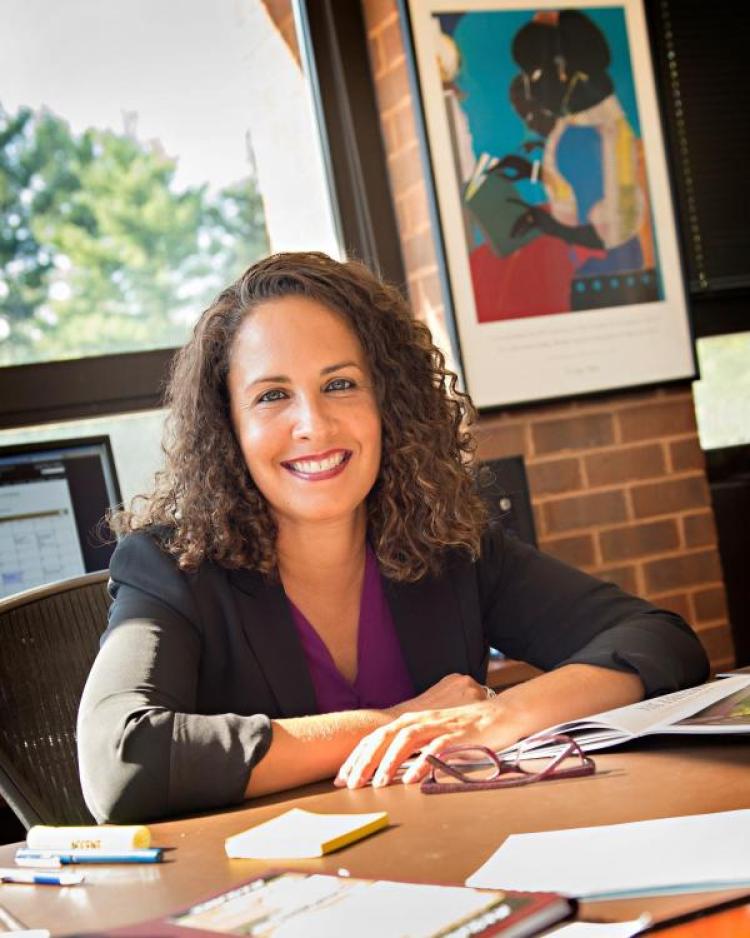5 questions: Understanding the magnitude of Biden's pick—Ketanji Brown Jackson
On Feb. 25, President Joe Biden announced his Supreme Court nominee, Judge Ketanji Brown Jackson, to replace Justice Stephen Breyer, who is retiring. Brown Jackson is a historic pick: If confirmed, she would be the first Black woman and the first public defender to sit on the court.
Brown Jackson is a magna cum laude Harvard/Radcliffe graduate, a member of the Harvard Law Review, a former clerk for three federal judges and author of roughly 600 opinions. She’s tried cases as a lawyer, presided over criminal and civil cases as a judge and served on the bench for almost nine years—more than Justices Roberts, Kagan, Thomas and Barrett combined.
To better understand the magnitude of this nomination, what Brown Jackson would add to the Supreme Court and the challenges she may face in confirmation, CU Boulder Today sat down with Suzette Malveaux, a professor of civil rights law at the University of Colorado Law School.

Suzette Malveaux
Just how historic is this nomination?
This is an incredibly historic pick. As the first Black female nominee to sit on the highest court of the land, Judge Ketanji Brown Jackson would be breaking one of the most impenetrable glass ceilings in our country’s history. In the Supreme Court’s 233-year history, there have been 115 justices, 108 of which have been white men. There have been only four white female justices, two African-American justices, and one Latina justice.
While white men make up only 30% of the population, they make up 70% of the federal judiciary. By contrast, only 2% of our federal judges have been Black women. Selecting a Black woman for the Supreme Court is long overdue, and after over two centuries of exclusion, it is time to change that.
The selection of Brown Jackson would also be historic in that it would shift the gender balance on the court to include four women justices. Four out of nine female justices starts to better reflect America.
How does Brown Jackson’s background as a public defender also differentiate her from other justices?
Brown Jackson’s experience as a federal public defender also makes this a historic pick. There has never been a federal public defender on the Supreme Court. The last time there was a justice who represented criminal defendants was Justice Thurgood Marshall in 1967.
Brown Jackson’s experience is important because she has represented some of the most vulnerable members of our society and can bring unique insights to bear. Moreover, her own uncle got caught up in the criminal justice system, which offers her an important lens through which to see the criminal justice system.
Brown Jackson also has family in law enforcement: Her brother and uncles served as police officers, and her brother has served in the military. The Fraternal Order of Police has endorsed her, and she has served on the U.S. Sentencing Commission. All these experiences give Brown Jackson the advantage of being able to appreciate very complex and difficult criminal law issues, which is especially important today.
Brown Jackson has also been open about her personal background, why is that important now more than ever?
I think people are yearning for leaders who they can relate to. Many people just want to be heard and seen by those who occupy some of the most coveted positions of power and shape our lives every day. Sharing her experience as a working mom, a child of parents who were public high school teachers, a person with family on both sides of the criminal justice system makes her more relatable. That offers Americans the hope and confidence that when she’s caucusing with the other eight justices behind closed doors, there’s someone “in the room where it happens” who understands.
Could Brown Jackson’s race be a hurdle in her confirmation process, as it was during her appointment to the U.S. Court of Appeals for the D.C. Circuit?
Research shows when you bring together people with different life experiences and viewpoints, you get higher quality analysis and better outcomes. This may seem obvious, but everyone has a race and everyone brings that into chambers with them. Everyone has life experiences that inform their understanding of the world. Certainly, Brown Jackson’s life as a Black woman will enrich the conversations and make them more inclusive in important and powerful ways.
How could Brown Jackson’s confirmation to the Supreme Court impact the court’s decisions in divisive cases (i.e., abortion, voting)?
Given that Brown Jackson would be replacing Breyer, with whom she clerked, she would not disturb the general 6-3 conservative/liberal split often used to characterize the court’s decisions. While she would surely participate in decisions that many consider divisive, the good news is that Brown Jackson is a consensus builder. In fact, she has already received bi-partisan approval from the Senate three times (two unanimously). She has the kind of temperament and integrity that ensures she will give thoughtful consideration to each decision she makes, and that she will follow the law.


